Open This Publication
Abstract in English:
Based on the scientifically elaborated elements for good work in coworking spaces, matching instruments were developed that bring users of coworking spaces together both with one another and with external parties. For this purpose, three different matching formats could be identified, (1) network formats, (2) cooperation formats and (3) transfer formats. In a coworking space in rural areas, events were offered to achieve the above-mentioned goals. It was found that both small and large events are necessary in order to be able to cover all the needs of those involved. On closer analysis, potential disadvantages of the variety of event formats have turned out to be advantages.
Abstract in original language:
Basierend auf den wissenschaftlich ausgearbeiteten Elementen für gute Arbeit in Coworking-Spaces wurden Matching-Instrumente erarbeitet, die Nutzende von Coworking-Spaces sowohl untereinander als auch mit Externen zusammenbringen. Dafür konnten drei verschiedene Matchingformate identifiziert werden, (1) Netzwerkformate, (2) Kooperationsformate und (3) Transferformate. In einem Coworking-Space im ländlichen Raum wurden dafür Veranstaltungen angeboten, um die o. g. Ziele zu erreichen. Es konnte festgestellt werden, dass sowohl kleine als auch große Veranstaltung notwendig sind, um alle Bedürfnisse der Beteiligten abdecken zu können. Potenziale Nachteile der Vielfalt von Veranstaltungsformaten haben sich bei genauer Analyse als Vorteile herausgestellt.
Editor(s) Full Names Mario Daum, Marco Wedel, Christian Zinke-Wehlmann, Hannah Ulbrich
Open Access? Yes
Book Title Gestaltung vernetzt-flexibler Arbeit: Beiträge aus Theorie und Praxis für die digitale Arbeitswelt
Publication Year 2020
Publisher Springer Vieweg
ISSN/ISBN 978-3-662-61560-7
DOI 10.1007/978-3-662-61560-7_15
German | Discipline Management
